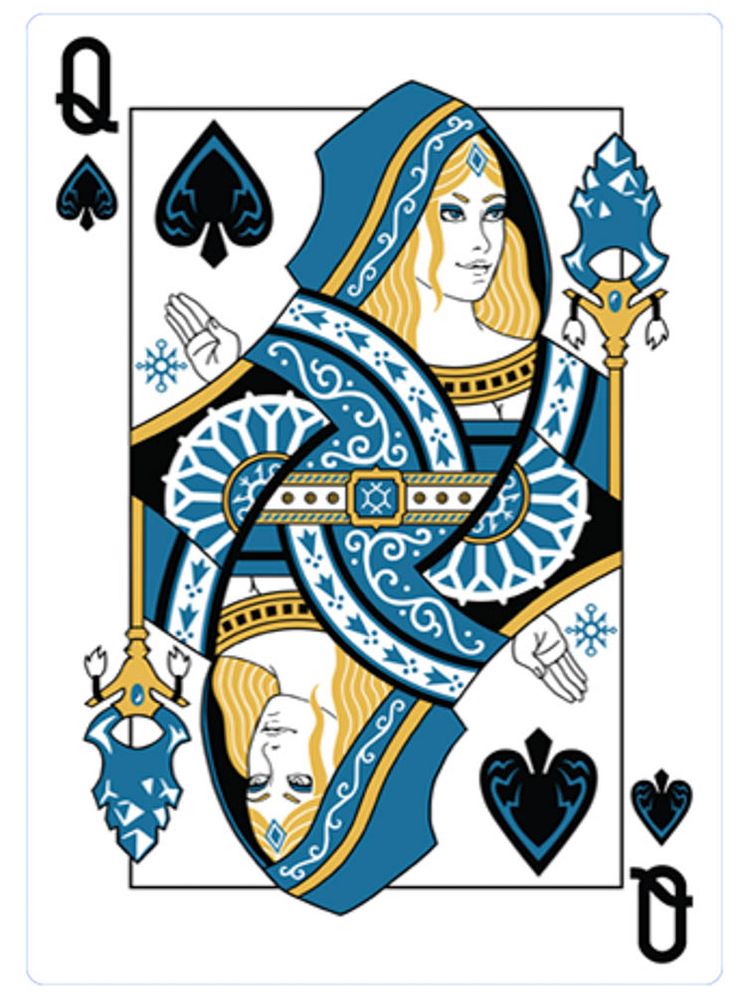Practically every email I’ve received in maybe the past year has started with “I hope you are well”. I even had an LLM draft a placeholder email for me and it started with the same thing. This has not always been the case and it’s strange to me that everyone I interact with begins their emails with this line. Frankly, it’s annoying AF.
What gives? Who started this? Why has it become so prevalent? More importantly, how do we stop it?
While I’m at it, if you work in tech / customer support, I urge you to speak with your supervisors to minimize the boiler plate copy paste trash you insert into your emails. People dealing with shit that’s not working as intended or desired do not have the mental or emotional capacity to wade through your platitudinal nonsense. Get to the fucking point.
It has it’s roots in actual letter writing, as in “I hope this letter finds you well”.
I’m so dumb that for years I seriously thought that meant the actual communication makes it to the recipient without any issues.
thats a fair thought, not dumb.
i’m still confused by Rest In Peace. Do you mean I hope this skeleton/soul doesn’t have anxiety? or that i hope the place the skeleton lays isn’t at war?
It means that may your soul rest in peace, has nothing to do with the actual body lol.
oh thanks, so rest in peace means rest in peace.
If I’m not mistaken, it comes via Latin, Requiescat In Pace, meaning the same thing. The idea being that the person is only temporarily dead and will be raised back to life at Jesus’ second coming. In some views, (which I guess would be in vogue at the time of coining ‘RIP’), the essence of the person is alive and conscious in heaven (itself an abstraction yet real), awaiting their bodily resurrection. Some views take this further, that the person could be conscious and tormented in hell or purgatory.
So Rest In Peace is wishing/blessing that the person may be at peace and rest, while they wait to be fully alive again when Jesus comes again.
sleep is the cousin of death
sweet dreams
Oh, great. Well if sleep’s any indicator, death’s got it’s work cut out for it.
More like, “Please don’t get up and start eating people or sucking their blood.”
To be fair, I’m certain that someone has written it with that as the intended meaning. It seems like the kind of passive aggressive thing some mannered British aristocrat would do.
I always wonder what this means. Does it mean “I hope this letter does a good job finding you, and you can subsequently read it” or does it mean “When this does find you, I hope it recognizes you are having a good day”.
Stock boiler plate regardless and one of the best ways to convince the recipient you are a twat.
Neither. The recipient needs more water, and the letter may or may not find them a well to get water from.
Imagine a time before instant communications, where you have no idea how life has treated the recipient since you last saw them and it might take months for your letter to arrive. It is a sincere hope that they are well and that tradgedy has not befallen them.
It would be neurotic and unreasonable if your last update on their life was only days or even hours before, but in the days of letters hope is really all you had. It’s just honest.
It just means you hope the recipient is well.
deleted by creator
Good idea. I just searched for “hope well” and have found hundreds if not over a thousand messages. Without scrolling all the way back, I found several in 2017 with variations of “hope you’re well”, “hope you’re doing great”, “hope you had a great weekend”. etc.
Those bastards and their pleasantries eh
Sorry! I’ll try to be more mean.
Have
a greatan okay weekend!may you live in interesting times
Hi Jim,
Plans for the weekend? That’s great to hear.
The annual report is blah blah blah…
I started it in 1995 because I thought it would be nice to kind.
I read your original Usenet post in 1995 but, because you never used punctuation back then, I thought you were trying to say,
I hope you are, well…
and took it as passive aggressive. Long have I blamed you, internet stranger. Now I must beg your forgiveness and hope, if hope not be lost, that you yourself are, well, well.
I noticed a lot more people starting using it over the pandemic.
Annoying AF seems a tad hyperbolic, no?
Not at all. If it wasn’t so bothersome I wouldn’t have taken three minutes to post something about it. I hate it.
If this is all it takes to be annoying you either have the easiest time, or you’re perpetually angry due to the most inconsequential shit.
More of the latter. When I’m dealing with the stress of due dates and troubleshooting things that aren’t working a needed, having to read through literal paragraphs of platitudes only to find one sentence regarding the support request can certainly increase my blood pressure. Sometimes the verbiage is so full of shit that it just comes off as spammy. I’ve deleted emails from support agents thinking they were phishing attempts.
Dev?
damn I guess we’re too privileged to find small things annoying now?
What do you mean?
the previous comment is implying that we’re not allowed to find things annoying and that if we do we either have nothing else going wrong in life or are perpetually angry.
this is one of the obvious tactics for bad-faith arguments that I never remember the names of.Hey Mac, I hope this comment finds you well.
“Annoying as fuck” indicates a high level of annoyance and/or frustration. My point is that if 7 words in the opening line of an email (which are trivially easy to skip or ignore) create that level of annoyance then something isn’t right.
I absolutely agree that people who are overly verbose, who step around the point they are making with flowery language, and use a thousand words when a few will do can make it considerably harder to extract a clear meaning, purpose, or instruction from that peice of communication.
But that isn’t what Op started with. Op said the opening line is what was annoying as fuck. That is what I was challenging them on.
Kind regards,
HelloThere.
Hello there, HelloThere.
I hope this message finds you on the toilet passing the best stool you’ve had this week.
What I find annoying as fuck is the disingenuousness of it all. Coming from a tech support agent I’ve never spoken before with is bullshit. Coming from someone I work with and communicate with on a daily basis is bullshit. The only time it should be used is coming from someone I’ve had a relationship with in the past whom I haven’t spoken with in months or years. That’s the kind of person who actually gives a shit if I’m well or not.
Incidentally, I used to get messages from Microsoft agents that started with “Dear, First”. That was just funny.
Best, oxjox
uh, ok. i really don’t care. people are allowed to find things annoying whether you agree or not.
At least it doesn’t ask for a response, like “how are you” or “how’s things?”
It’s just an attempt to briefly acknowledge you’re asking a human your questions, rather than an algorithm.
You’re presumably capable of seeing and skipping the sentence without reading it, so go ahead. Nobody expects an answer, nor continued “courtesies” during back-and-forth replies.
Having thought about this, I think I will start using Ave like a Roman.
Ave Oxjox!
When people used to mail letters by post to stay in touch a common opening was “I hope this letter finds you well.”
It carried over from that.
I use this when the tone of my email would otherwise be, where’s my spreadsheet motherfucker?? It’s nice to modify the overall tone of the email to something more friendly. I have a very curt writing style so I’m often concerned my emails will come off as blunt or demanding if I don’t include a pleasantry.
I work in a very friendly, informal field so I find myself doing little pleasantries to fit in, email-wise.
I would love if my coworkers were more blunt and honest.
“Where the fuck is my spreadsheet” is very concise. It tells me what you want, it tells me what my responsibility is, and it probably tells me the level of priority the issue is for you. “where’s my spreadsheet motherfucker” is similar but, depending on our relationship, I’d take that either far more seriously or more jokingly.
I have one guy I work with who speaks like this. He had to explain himself at first then I was like, yes please continue talking to me like a human. I’m more likely to trust people who don’t hide behind pleasantries and are just themselves with me.
I think you’re answering your own question here.
Your blunt coworker has to explain himself or risks being taken as rude by people who don’t know him. You yourself couldn’t determine if he was being rude to you without some additional context.
Without further context, you don’t know how to interpret an email that says where is my spreadsheet motherfucker.
In both cases, you’re saying further social cues are needed to determine if someone you don’t know very well is being rude or not. Hence, why people emailing people they don’t know very well in a professional capacity include niceties to convey context and tone.
I usually am pleasant, though. I would feel much less human if I just demanded things!
I can’t find this specific sentence in my inbox. So I guess there are some variations. It’s just the same platitudes as people asking “how’s it going” when greeting people. It’s a weird form of politeness I’ll never really understand, but is just there. It’s futile to try and change this, IMHO.
I always feel like the odd one out because I genuinely want to know these things and people just tend to brush it off …
Dear OP,
I hope you and your family and friends and relatives and co-workers are wellTo nip it in the bud it’s entirely the influence of the overly polite English and since Brexit this has deteriorated (de-Tory-ated). Just saying 😀
Dear Tulip Fucker,
I’d like to express my dismay that…
deleted by creator
Yes, “Dear” should be either something you send part-jokingly to your actually close colleague, or a sarcastic one, when someone seriously fucked up and you send them a message explaining that.
One thing that I’ve found with junior staff is that they feel a need to be overly nice in their correspondence without realizing the interaction takes time.
I’m decades beyond being junior staff and I’m always nice in my emails. I don’t care how long it takes.
I’m 1(one) decade beyond, and I’m super short and direct with a hint of familiarity. It also works, because it feels humble. It is humble, because you can’t hide any second meaning behind “I do this, you do that, okay?”
There is a difference between nice and overly nice.
And I’m not talking about the time it takes you to be nice, but the time it takes others to process your niceness.
For instance, burying the lede on what the email is for in order to say “I hope this email finds you well”. Use that space to get to the point so that the person on your receiving end can process the email quickly. If it is a request, say please but nothing beyond that.
100% agreed. Please and thank you are standard. Pleasant tone and asking to work together rather than giving commands is also.
It takes so very little extra effort to be nice.
After some trepidation I’ll confess that I find these “hope you are well” also annoying though it depends who the sender is. What I find more annoying are the “OK, boomer” comments on the Internet. I mean what can you say after such a reply ?
OK, Boomer.
That’s the intended effect – a condescending dismissal of being condescendingly dismissed. Not much you can say to a clear sign of disengagement.
🙂 Thank you for softening the pain.
It’s just a salutation. A pleasantry. It’s a formal way of opening a correspondence. It’s considered polite. You don’t need to put one if you don’t want to, but if your message is terse, it can come across as rude.
I blame AI. I notice ChatGPT is always trying to put that into my emails. Maybe because of that, I’m also noticing it in lots of emails I get.
I don’t blame AI but it was an AI generated email I requested (for testing purposes) where I first realized this is commonplace. It got me to wonder if others are using AI to generate emails as well.
I’ve only seen it as a statement someone adds to an email when they haven’t contacted you in awhile.
That’s the appropriate usage, in my opinion. If I contact someone I’ve had a relationship with in the past, I might say something like hey dude. Been a while, hope you’re well.
When it’s the first time a support agent from Adobe or Microsoft interact with me from the other side of the world, I find it off putting and disingenuous (to say the least).
Pretty sure nobody has any real idea how to send text correspondence anymore.
Like, I work in a building 10+ miles away from my boss and often communication is done through text, email, occasionally by voice, but almost never in person.
Every time I send a work email to my boss/coworkers, I find myself staring at the screen wondering…“Wait, is there any particular way to start these things? ‘Dear So-n-So’ is really weird. ‘First/Last Name’ seems fine unless I’m sending the email to multiple people, which happens pretty regularly. Would just jump straight into the body of the text, but that seems… wrong somehow… and potentially confusing if an email address is not something that is human readable or mixed in with a list of email addresses.”
Eventually I just bang something out and figure, whatever, its not like 90% of my emails seem to get read by anybody anyways.
If I’m sending it to one person I’ll open with “First,” or “Hey/Hi First,”. For multiple people, “Hello,”.
I like to get to the point and hope to influence others to do the same. I have other coworkers who send me messages in Teams that literally just say “Hello”. I mean, come on. You’re going to distract me with “Hello” and not ask me a question? I’m not responding to Hello or even can I ask you something. Of course you can ask me something, that’s what I’m here for and that’s why we have the ability to communicate with each other. Spit it out kid!
“Hello” is probably the best answer but I find myself having a knee jerk “but it seems too informal to use in a work setting” that I will need to get over.










